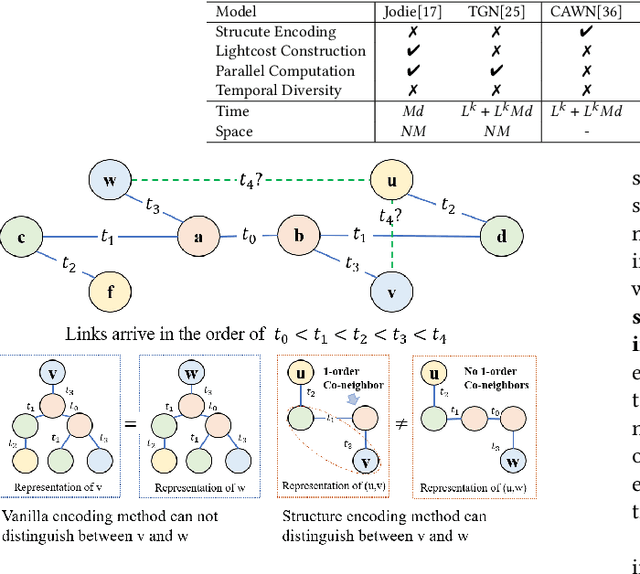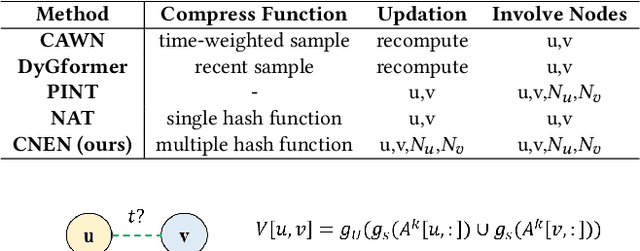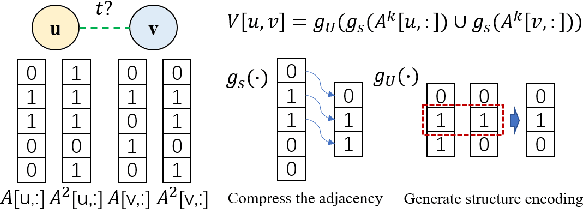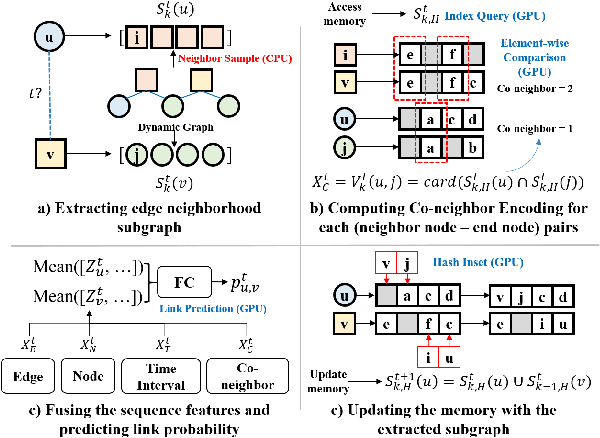Co-Neighbor Encoding Schema: A Light-cost Structure Encoding Method for Dynamic Link Prediction
Paper and Code
Jul 30, 2024



Structure encoding has proven to be the key feature to distinguishing links in a graph. However, Structure encoding in the temporal graph keeps changing as the graph evolves, repeatedly computing such features can be time-consuming due to the high-order subgraph construction. We develop the Co-Neighbor Encoding Schema (CNES) to address this issue. Instead of recomputing the feature by the link, CNES stores information in the memory to avoid redundant calculations. Besides, unlike the existing memory-based dynamic graph learning method that stores node hidden states, we introduce a hashtable-based memory to compress the adjacency matrix for efficient structure feature construction and updating with vector computation in parallel. Furthermore, CNES introduces a Temporal-Diverse Memory to generate long-term and short-term structure encoding for neighbors with different structural information. A dynamic graph learning framework, Co-Neighbor Encoding Network (CNE-N), is proposed using the aforementioned techniques. Extensive experiments on thirteen public datasets verify the effectiveness and efficiency of the proposed method.
 Add to Chrome
Add to Chrome Add to Firefox
Add to Firefox Add to Edge
Add to Edge